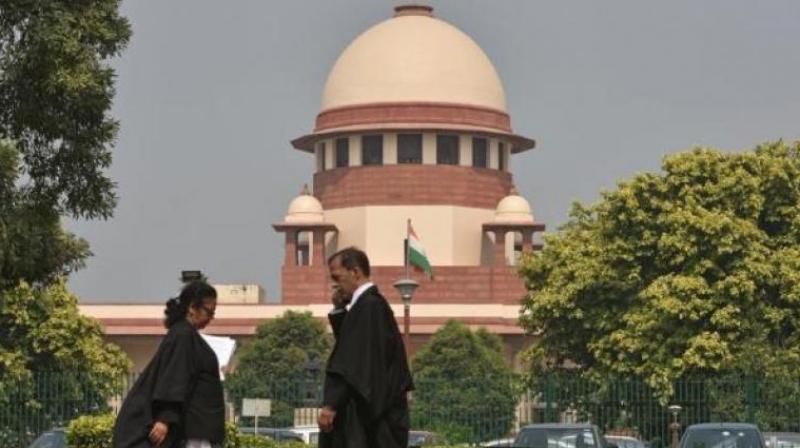SC to hear pleas challenging the controversial CAA
In 2020, the Kerala government also filed a suit in the apex court becoming the first state to challenge the CAA

New Delhi: The Supreme Court will hear on September 12, a batch of petitions challenging the constitutional validity of the controversial Citizenship (Amendment) Act, 2019. Nearly 220 petitions are listed for hearing before a bench headed by Chief Justice Uday Umesh Lalit and comprising Justice S. Ravindra Bhat.
The law fast-tracks the process of granting citizenship to Hindus, Sikhs, Buddhists, Jains, Parsis and Christians who fled religious persecution in Afghanistan, Bangladesh and Pakistan and took refuge in India on or before December 31, 2014, but excludes Muslims.
The Kerala-based Indian Union Muslim League (IUML), Trinamul Congress MP Mahua Moitra, Congress leader and former Union minister Jairam Ramesh, MIM president Asaduddin Owaisi, Congress leader Debabrata Saikia, NGOs Rihai Manch and Citizens Against Hate, Assam Advocates Association, and law students are several among others who had filed the plea before the top court challenging the Act.
In 2020, the Kerala government also filed a suit in the apex court becoming the first state to challenge the CAA.
On December 18, 2019, when petitions challenging the CAA came up for hearing, the top court had response from the Centre on the petitions challenging the controversial law which petitioners described as discriminatory.
Thereafter it came to be listed twice in January 2020, once in February 2020 and once in June 2021.
In March 2020, the Centre filed its affidavit before the apex court saying that the CAA Act is a "benign piece of legislation" which does not affect the "legal, democratic or secular rights" of any of the Indian Citizens.
The CAA does not violate any fundamental right, the Centre had said while terming the legislation legal and asserting that there was no question of it violating constitutional morality. The top court had in the past declined to stay the operation of the amended provisions of the Citizenship Act.
Attorney General K.K. Venugopal had opposed the plea for putting on hold the amended provisions of the Citizenship Act asserting that there is an assumption of constitutionality of the law passed by the parliament.
Attorney General Venugopal had said that there were four judgments of the top court which have said that a statute under challenge could not be stalled as there was an assumption of constitutionality in favour of the statute passed by Parliament.

